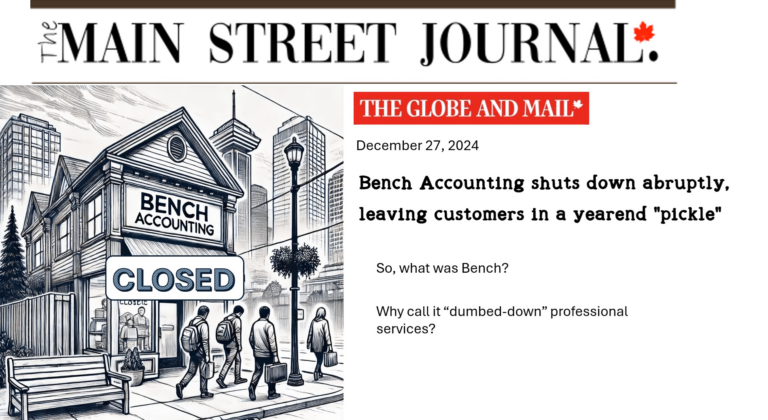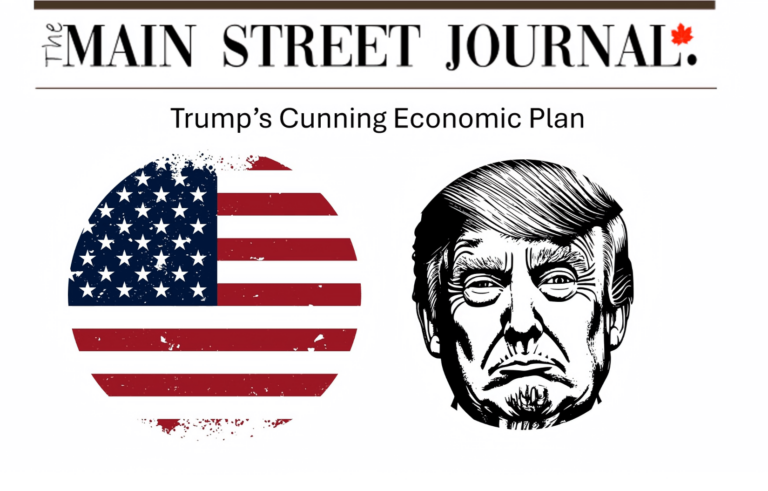The Main Street Journal
Careers + Training
Insights and tips for professional growth and skill development.
Critical Thinking
Strategies and insights to enhance analytical and decision-making skills.
Ethics + Professionalism
Guidance on integrity, accountability, and excellence in practice.
Finance + Investment
Tips and insights for managing money and building wealth.
History + Culture
Exploring the events, traditions, and ideas that shape our world.
Technology
Exploring innovations shaping the future and enhancing everyday life.
Management + People
Effective strategies for leadership, teamwork, and growth.
Productivity + Tools
Boost efficiency with strategies and the best tools for success.
Economics + Tax Policy
Insights on economic trends and the impact of tax regulations.
Tax + Compliance
Essential tips and updates for navigating tax regulations and ensuring compliance.
Statistics - About Us
Making sense of data to uncover trends and insights.
Accounting + Tax
Expertise and updates on financial management and tax regulations.
The Influencers
Highlighting leaders shaping trends and driving change.
Political Science
Analyzing systems, policies, and the dynamics of power and governance.
Healthy Living
Tips and insights for a balanced and vibrant lifestyle.
ABOUT
Launch – June 16th, 2023
The MAIN STREET JOURNAL was launched online in 2023, as a kind of Canadian, small business counterpoint to the venerable WALL STREET JOURNAL (WSJ), established in New York City in 1889.
Canada’s small businesses are smaller than most people think.
This is true for people that work in small businesses, for policymakers, business schools, and the business press. The self-employed and other small business owners don’t ‘get no respect’ and yet about 73% of private sector employment in Canada is made up of the 2.85 million self-employed individuals, and 1.3 million small employer businesses which average less than 7 employees.
We believe it’s time that these workers, and the small business owner-managers that employ them, got some respect. What’s more, we believe that business schools and policymakers should get out of their ivory towers and take a walk on Main Street!

The Editorial Board
 Finance + Investment
Finance + Investment Risks of Founding a Startup
What are the chances of a successful exit for angel investors in a startup? Angel investing is a high-risk, high-reward...
Silicon Valley Snake Oil
The old west is alive and well in Silicon Valley – and Silicon Valley North.The closure of Bench Accounting Inc...
 The Influencers
The Influencers Bench Accounting Closes its Doors
According to an article in the Globe and Mail on December 27th, 2024:“Bench Accounting, a Vancouver-based bookkeeping company, ceased operations...
 Tax + Compliance
Tax + Compliance Regulatory Bodies in the Accounting Profession
The 20th century saw a proliferation of professions from the original three:First, theology;Second, medicine;and third, the law. Religion has recently...
 History + Culture
History + Culture Taylor Mania
First, an admission.We didn’t actually go to Vancouver to see the much-hyped Taylor Swift tour.I mean we're not stupid.We didn’t...
 Management + People
Management + People Trump’s Cunning Economic Plan
As Canadian politicians bend over backwards to placate the incoming president, they seem unable to understand what they’re dealing with....
